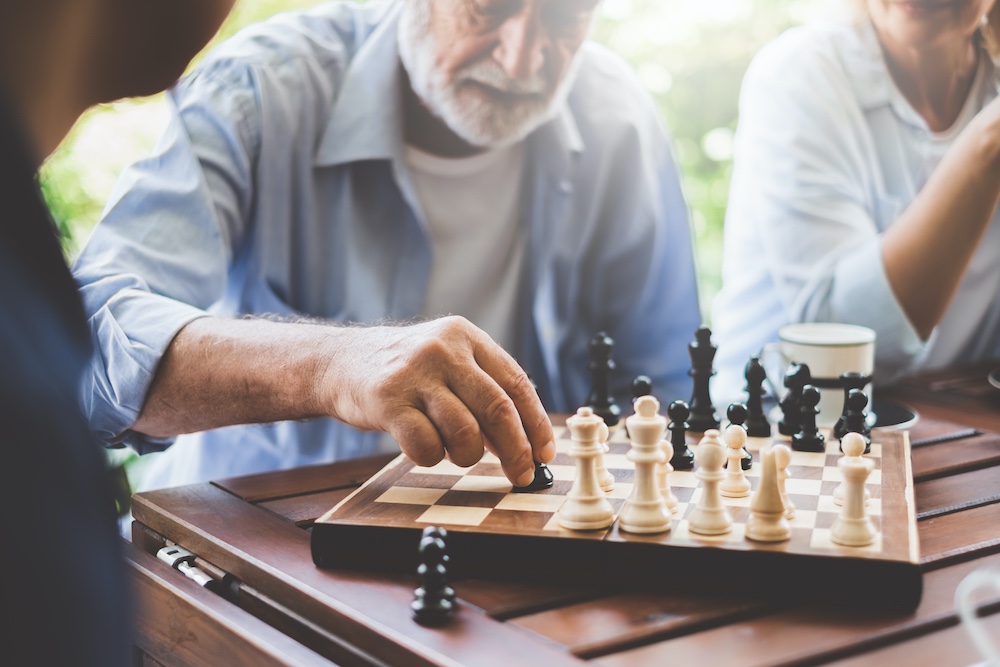How to Protect Against Memory Loss
Did you know that memory loss is common while aging? More than 55 million people worldwide struggle with age-related memory loss or dementia. The effects of this type of memory loss are usually permanent and often progressive.
The best way to protect your memory is to be proactive. Let’s explore what memory loss is and what you can do about it before it’s too late.
What is Age-Related Memory Loss?
Perhaps you’ve heard the term ‘dementia’ before. It’s an umbrella term that refers to generalized cognitive decline from a variety of specific and non-specific causes. Memory loss includes formal diagnosis like Alzheimer’s Disease, Vascular Dementia, Lewy Body Dementia, and encephalopathy.
As seniors age, memory impairment may begin subtly and progress gradually. Here are a few signs to watch out for:
Repetitive questions
Forgetting common words
Mixing up unrelated words
Slower pace to complete tasks
Losing important items
Getting lost in familiar places
Mood or behavior changes
How to Prevent or Slow Down the Progression of Memory Loss
With memory loss, there are many different causes and the extent to which interventions work can vary by individual. However, years of cognitive research support healthy activities to stop the progression of memory loss. Here is a look at what you should focus on:
Socialization
Socializing is an activity that easily falls by the wayside with age. When you reach an age where many of your friends have passed away or are suffering from variations in physical and mental capacities, socialization can become a chore.

Many seniors choose to disengage at the risk of increased depression. Even though being social becomes more difficult with age, it’s still essential. We’re a social species, dependent on connection with others to meet our emotional needs. When these needs are unmet, we experience fewer serotonin releases and an increased risk of depression. This chemical imbalance may contribute to memory loss.
One way to effectively combat age-related memory loss is to seek out opportunities to socialize. This is one key reason that many assisted living facilities put effort into social programs for their residents.

Mental Stimulation
Call it lifelong learning, a growth mindset, or just an inclination to keep the mind engaged–the right stimulation can strengthen memory. When we participate in mental stimulation activities, including learning new things, completing arts and crafts, or solving puzzles we are actively strengthening neurons.
This leads to:
Improved attention span
Better cognitive reasoning skills
Reduced risk of dementia
Increased ability to handle challenges
There are plenty of fun ways to stimulate the mind. Consider taking an art class or engaging in weekly art projects to boost creativity. Simple activities like painting, ceramics, mosaics, and crochet can be a fun way to stay stimulated.
Courtyard Gardens of Boynton Beach

Specializing in memory care, assisted living, and independent living with supportive services.
Your vibrant community will consist of other members who seek to enjoy an active and inspired next chapter of their lives, along with their friends.
Nutrition
At a basic level, your body needs proper nutrition to perform daily activities. As nutrients become sparse, the body prioritizes essential functions. And in terms of live-preserving measures, memory is non-essential.
Prioritizing balanced nutrition can ensure that your body gets all the nutrients it needs to function well. Additionally, diets that are high in saturated fat have been linked to poor performance on memory tests.

Modern nutrition science supports the use of diets such as the Mediterranean diet, which focuses on fruits, vegetables, whole grains, fish, and olive oil. There are other diets shown to have good results, and most focus on eliminating highly processed foods and focusing more on natural ingredients.

Sleep
Next to food, the most important part of maintaining good health is proper sleep. All adults, even seniors, should get between 7 and 9 hours of sleep each night. Unfortunately, many senior citizens struggle to get the sleep they need most.
Factors that affect sleep include:
Improved attention span
Better cognitive reasoning skills
Reduced risk of dementia
Increased ability to handle challenges
Snoring
Sleep apnea
Frequent urination
Circadian rhythm disorder
Reduce Stress
Well before age takes its toll on cognitive function, stress can meddle with your brains healthy function, making memory less reliable. There are both direct and indirect relationships between stress and memory problems.
For one, cortisol levels rise when an individual is under stress. This hormonal release wreaks havoc on the body, impeding sleep and causing weight gain. These changes lead to exhaustion, which then interfere with proper memory encoding, retention, and retrieval.


Get Active
Mobility ailments are the leading cause of inactivity, followed shortly thereafter by depression in the senior population. Yet, physical activity releases feel-good hormones that can combat depression, reduce cortisol levels, improve sleep and ultimately help protect against memory loss.
Factors that affect sleep include:
Improved attention span
Better cognitive reasoning skills
Reduced risk of dementia
Increased ability to handle challenges
Snoring
Sleep apnea
Frequent urination
Circadian rhythm disorder
Protect Your Memory with Compassionate Care at Our Boynton Beach Assisted Living Facility
Nobody wants to live with memory loss. It’s confusing and scary and even though many seniors struggle with memory loss you can take proactive steps to protect yourself. At our Boynton Beach Assisted Living Facility, we specialize in providing services and programs designed to help keep your memory sharp.

